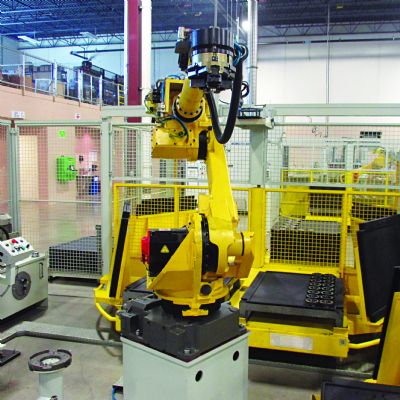It's Time to Meet Customer Expectations for Product Customization
August 1, 2015Comments
 Customer demands for highly configured products have created a new normal in discrete manufacturing, and operational managers must adopt new strategies to manage such complexity. While producing highly customized products provides a competitive edge, the logistics involved can erode efficiency and threaten profitability. Many manufacturers turn to postponement strategies and late-stage assembly as they redefine workflows, quality control and inventory management. It’s a new manufacturing environment, where innovative concepts are devised and tested every day. In order to remain competitive, operational processes must evolve.
Customer demands for highly configured products have created a new normal in discrete manufacturing, and operational managers must adopt new strategies to manage such complexity. While producing highly customized products provides a competitive edge, the logistics involved can erode efficiency and threaten profitability. Many manufacturers turn to postponement strategies and late-stage assembly as they redefine workflows, quality control and inventory management. It’s a new manufacturing environment, where innovative concepts are devised and tested every day. In order to remain competitive, operational processes must evolve.
The quest for competitiveness has caused manufacturers to move away from simple make-to-stock processes and to introduce make-to-order and, to a lesser extent, engineer-to-order capabilities. These methods require close supplier collaboration and a deep understanding of what can and should be produced, and when. To keep these operational demands from negatively impacting profitability, manufacturers must adapt new processes while continuing to control quality and product specifications. This is no easy task given the ever expanding range of product styles, features and related accessories.
What Does Postponement Mean?
Postponement is a workflow strategy. In many ways it represents a direct contradiction to the lean principles that have dominated manufacturing. Simple linear flow of production is not the best way to accommodate the high degree of variation that customers demand. Instead, a postponement strategy delays the assembly of the final product as long as possible. This allows the manufacturer to personalize orders and to change the product mix to reflect changing demand patterns. Postponement avoids the risks and costs of producing undesired products. With postponement, manufacturers produce and stock subcomponents up to the point of differentiation, and then complete a customized version of the product to satisfy a unique or small-lot requirement.
A Successful Postponement Strategy Requires Agility
First and foremost, a successful postponement strategy requires a highly integrated and agile supply chain. The manufacturer must align purchases and deliveries to the most current demand forecasts. Manufacturers have made great strides in their abilities to design and bring to market complex products at affordable prices, but market pressures continue to drive innovation and product customization. These pressures include:Customer expectations—One striking result of progress in the capabilities of manufacturers has been the evolution of what customers have come to expect. It’s as if consumers buying highly customized products got a taste of what manufacturing can accomplish and they’re no longer willing to settle for mass-produced, generic products. Customers demand more individualized products—but at the same speed and value as mass-produced items.
Inventory control—The high cost of inventory represents an important driving factor behind adoption of postponement strategies. Maintaining an inventory of multiple variations of a product can be cost-prohibitive. When companies offer hundreds of choices of styles, colors and features, inventory implications become staggering. The short-lived product lifespan also makes maintaining inventory of a particular version risky. No brand manager wants to be stuck with yesterday’s bestseller when the consumer looks to purchase the new and improved version.
Quality control—Although customers expect highly specialized products, they still look for reliable quality and brand continuity. The manufacturer must ensure a level of consistency among the many variations produced and shipped under its name, even when subcontractors and third-party logistics partners may be involved in completing the product, packing and shipping.








